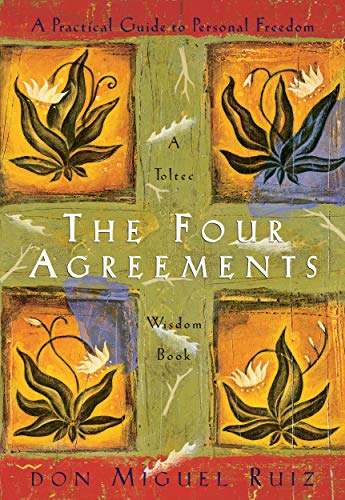

This article is an excerpt from the Shortform summary of "The Four Agreements" by Don Miguel Ruiz. Shortform has the world's best summaries of books you should be reading.
Like this article? Sign up for a free trial here .
The third agreement is “Don’t make assumptions.”Remember the old saying about the word “assume” – it makes an “ass” out of “u” and me? This agreement is the same idea with a more spiritual bent.
Making assumptions is dangerous because we often have no idea what is really going on in a situation. We fill in the blanks in our minds without enough information, and then we’re pretty convinced we know what’s going on. Spoiler alert: We don’t. We’re prone to mistaken beliefs, and acting on these mistakes will cause more trouble.
This is a hard agreement to follow because we make assumptions so often, and making assumptions comes so naturally. We’re usually pretty impressed with our own insight. We think our assumptions are true.
Bad Stuff Happens When We Make Assumptions
Making assumptions can lead to a cycle of conflict:
Assumptions => Misunderstanding => We’re offended and take it personally => We lash back => Big drama ensues
Making assumptions and taking things personally (agreements two and three) go hand in hand, leading to gossip, conflict and suffering.
What’s the biggest assumption of all? We think everyone sees life exactly as we do. In fact, everyone sees the world through their own unique way. If you don’t communicate with someone else about how each of you is seeing the world, you create misunderstanding.
Mitote, the chaos in our minds, leads to misunderstandings and misinterpretations. We simply don’t perceive things the way they truly are.
- Here’s an example: You’re at the mall. Someone you know and like gives you a warm smile from a distance. You decide she likes you. Loves you! You’re going to be so happy together. You create a fantasy that likely has no semblance of reality. You set yourself up for disappointment, embarrassment or heartache. You potentially put that person in an awkward position. (Shortform note: this example is a bit odd, but was in the original book.)
Assumptions are particularly dangerous in relationships. We have to be clear in communicating what we want because no one knows what we’re thinking.
- Example: You and your partner agree that you’re in a relationship. But if you two have different ideas about what it means to be in a relationship (monogamy, spending every waking moment together) and don’t clarify the issues, anger ensues. You fail to meet each others’ expectations.
- We often go into relationships with blinders on, seeing what we want to see. We make dangerous assumptions such as “My love will change her.” (Of course, there are certainly no guarantees that anyone will change. Real love accepts others the way they are without wanting to change them.)
The danger isn’t only in making assumptions about others. We make assumptions about ourselves. We underestimate (assume we’re less capable than we are) or overestimate ourselves, leading to disappointment, self-doubt and recriminations.
How Do We Stop Making Assumptions? Communication and Clarification
So how do you stop making assumptions and jumping to conclusions? Ask questions! Have the courage to seek the truth. If you know the truth, you don’t need to make assumptions. And if you don’t make assumptions, you don’t make mistakes.
- Here’s an example: You’re convinced you didn’t get the promotion you’ve been working toward. Your coworker went to lunch with the boss. Surely that means she got the job! Or so you assume. You get anxious and stressed.
- Solution: Don’t make assumptions. Ask if the promotion has been decided already. Find out what you need to do to receive the promotion. Have regular meetings with your boss and be clear about your desires and ambitions. Don’t overanalyze tiny signals that may not mean anything. Focus your energy on finding out what the truth is.
(Shortform note: be comfortable asking questions you’re afraid might be too simple or dumb, like “why do you feel that way?” “What motivated you to do that?” “What would you do in my situation?” If you ask these in the right tone, these are fantastic questions to get rid of assumptions on both sides.)
To stop making assumptions we must:
- First understand how important this agreement is and how assumptions lead to misunderstandings.
- Become aware of our tendency to make assumptions. We can’t change what we’re not aware of.
- Ask questions. Learn the facts about a situation.
- Communicate. You won’t have to make assumptions if everyone’s on the same page.
- Take action. Forge a new habit of NOT assuming and seeking the truth instead. Do this over and over, establishing a solid foundation.
When we stop making assumptions, we take the blinders off. We understand what is truly happening in our lives. You’re on the same page as your spouse, children, friends, etc., with honesty and open communication. You’re less likely to be blindsided by unpleasant truths because you already have a clear understanding of a situation.
———End of Preview———

Like what you just read? Read the rest of the world's best summary of Don Miguel Ruiz's "The Four Agreements" at Shortform .
Here's what you'll find in our full Four Agreements summary :
- What the Four Agreements are, and how they'll make you happier with life
- Why you need to take responsibility for your life, instead of blaming others
- How to achieve breakthroughs in your life and shake off old habits






